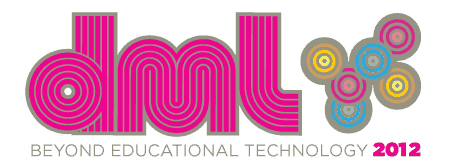IPE: Democratizing Computer Science through Culturally Relevant Pedagogy in Urban Schools: Building on Students‚ Funds of Knowledge and Community Cultural Wealth
Often described as “Digital Natives,” the majority of today’s K-12 students are using technological devices for accessing instant information, communicating (social networking, texting, etc.), and playing videogames. Virtually all aspects of this technological explosion are driven by computer science (CS). While those using CS-developed tools are extremely diverse, those studying and working in CS-related fields are not. By limiting the production of new technology to a homogenous group, much of our digital world is being dictated by a shrinking sphere of influence.
CS’s lack of diversity can be traced back to secondary education where women, Blacks, and Latino/as are routinely denied access to high-level computing classes due to tracking, a lack of teacher preparedness, differential curricula, and the absence of culturally relevant CS curricula. Deficit ideologies rationalizing CS’s lack of diversity to an inability to learn or disinterest further exacerbate this divide.
In an effort to challenge CS’s lack of diversity, this symposium’s three projects explore and highlight how engaging culturally relevant pedagogy in a CS curriculum—while placing critical consciousness on equal footing to academic success—can motivate non-dominant students to learn CS in high-poverty, majority Black and Latino/a schools in the second largest school district in America. All three projects draw on “funds of knowledge” and “community cultural wealth” research as theoretical foundations for addressing diversity in CS classrooms. These projects illustrate how incorporating students’ funds of knowledge—students’ “historically accumulated and culturally developed bodies of knowledge” and community cultural wealth (students’ aspirational, familial, social, navigational, resistant, and linguistic capital) to contextualize academic learning within the knowledge students already possess, can increase student learning and engagement. All three projects promote social justice and community activism based on students’ cultural wealth within a CS curricular context.
The first paper examines how a student-produced video game through the Scratch program can be used to teach critical literacy, computational thinking and self-reflective practices. Students investigate, research and self-reflect about their lives in the context of larger sociopolitical issues to produce a “choose-your-own-adventure” serious game for the express purpose of initiating social change. The second paper showcases work that is grounded within an indigenous research paradigm and aims to develop a learning foundation of ancestral knowledge in a high school computer science classroom. Finally, the third paper involves a K-12/University partnership dedicated to increasing access to quality, computer science (CS) learning in diverse, urban, public schools by developing innovative methods for engaging students in computational thinking and data analysis. Students use mobile phones, phone apps, and web services to conduct community-based research around issues that are important to them.
This session invites audience participation and dialogue around ideas and research shared. During a momentous time when “21st century skills” have become the lingua franca of educational reform with CS knowledge playing an increasingly important role in all fields, this symposium makes a unique contribution to public education by providing valuable examples of how culturally-relevant CS curricula can successfully engage traditionally underrepresented groups.



